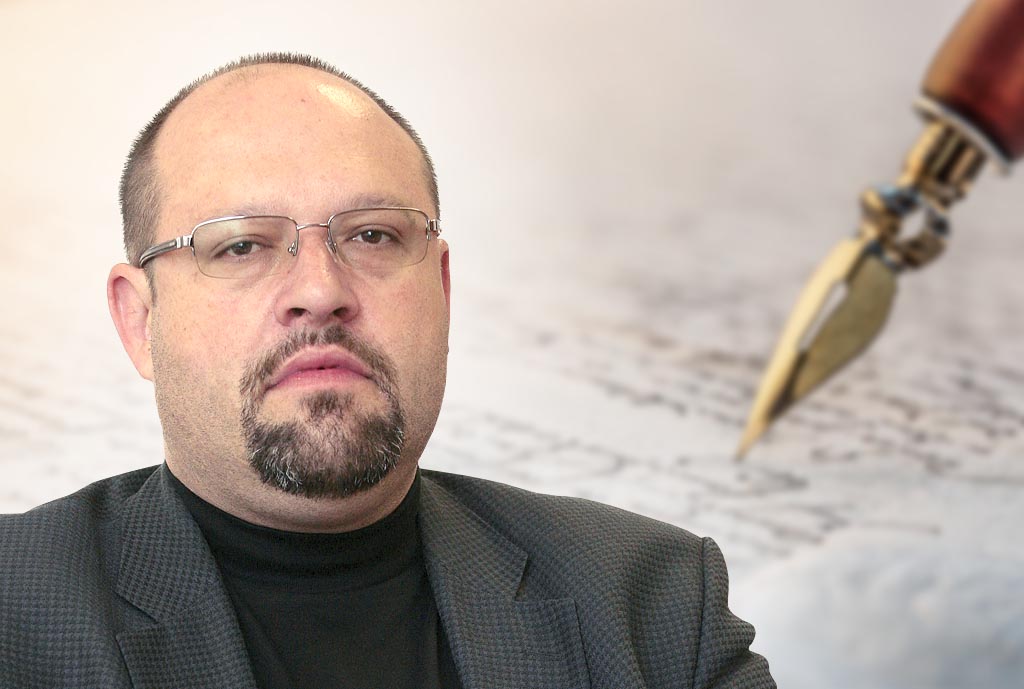By: Dr Matevž Tomšič
In the era of “freedom”, hardly a week goes by without the authorities shocking us with some new absurd idea. Recently, the proposal for an emergency health law (already sent to parliament by the government) caused quite a stir, which, in the end, would mean nothing less than the introduction of compulsory work for doctors.
The content of the law relates to the provision of healthcare services in emergency situations. Among other things, it anticipates the temporary reassignment of healthcare workers, the prohibition or restriction of granting consent to work for another healthcare provider, the mandatory inclusion of healthcare service providers outside the public healthcare service network in the work of public institutions, performing an increased volume of work regardless of age and other limitations, and the inclusion of retired healthcare workers. These are supposed to be temporary measures applicable in exceptional circumstances. However, the definition of these circumstances is very broad. It is not only about exceptional events such as natural disasters but also situations where there is a shortage of healthcare personnel or an increased workload. This means that these measures could be introduced now. We know that there is a shortage of doctors, and the waiting times for some procedures are very long.
At first glance, it is clear that such measures would be unconstitutional. Arbitrary reassignment of healthcare personnel without their consent constitutes a gross violation of human rights and is in complete contradiction with the principles of professional autonomy. Therefore, in the end, such a law would probably be struck down by the constitutional court.
After a strong revolt from medical associations, the responsible minister, Valentina Prevolnik Rupel, announced a change to the law and the removal of the most scandalous provisions. She claimed that these issues arose due to time constraints. However, it is clear that the Ministry of Health completely ignored the opinions and proposals of medical associations. They did, however, find time to meet with representatives of the People’s Voice initiative. Recall that this is a group of radical left-wing activists who, during the previous government, helped pave the way for Golob and his associates to come to power. Now, they are “holding the government accountable” by interfering in the regulation of affairs in almost all areas. The doors to government chambers are wide open to them.
The mentioned law is another expression of the increasing amateurism of politics. Those who accused Janez Janša’s government of “putting politics above expertise” are now doing so to a much greater extent. Instead of consulting with healthcare professionals, they prefer to listen to someone like Jaša Jenull and his street companions, who are incapable of anything other than reproducing clichéd and failed socialist ideas.
However, the issue is even more problematic. The ideas of arbitrary forced reassignment of doctors reflect a repressive statist mentality. This mentality does not understand individuals as autonomous beings whose decisions are based on free choices but rather as some kind of “farmers on the chessboard” who authorities can manipulate at will. Just as doctors could be subjected to forced labour, the same could be done for teachers (who are also in short supply) and others. There is simply no place for such subjugation of citizens in a democratic order.
Those who promised that “freedom” would come with them in power want to control practically every aspect of life. No government before has interfered so much in the life choices of people. Golob and his associates would like to dictate what we can and cannot eat, how we should travel, how often we can drive cars, how many passengers we must have, etc. Not to mention their desire to tax “everything”. Now, they would like to force certain professional groups into determining where and how they should perform their professional work. What will follow: mandatory ways to spend leisure time?

